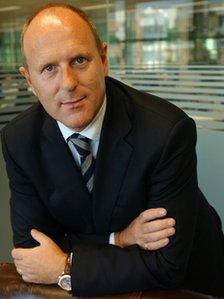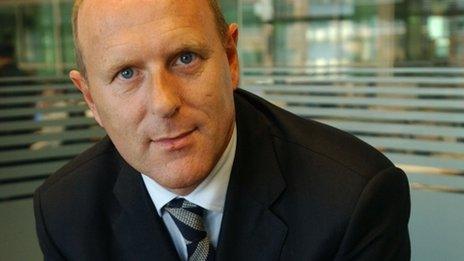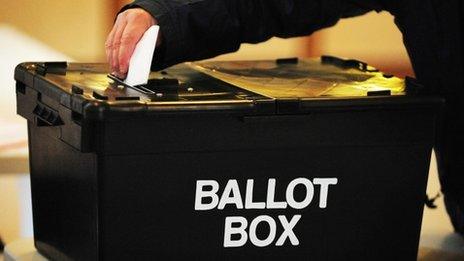Cash for Cameron
- Published
- comments

Mr Cruddas was secretly filmed saying £250,000 gave access to party leaders
People don't usually get wealthy without demanding something concrete in return for their money.
Donors to political parties - who don't give anything like the quarter of a million pounds apparently needed to join the Conservative "Premier League" - are regularly offered access to all the party leaders.
This usually happens over a formal dinner with other party supporters. In return for their donation they get the chance not only to chat to the current or future minister or prime minister but also the opportunity to boast about it to their friends or even to show off the photographs.
What they are not meant to be buying is the opportunity to influence policy.
It is, in truth, a pretty fine line but one which the now ex-Tory Treasurer, Peter Cruddas, trampled all over.
He was caught on camera boasting of his readiness to swap cash not just for access to the prime minister and his wife in their private apartment, but for an input into policy via a committee at No 10.
What Mr Cruddas called "bluster" has opened the prime minister up to demands that he reveals who he meets when - even when it is in his own home - and what it is they discussed or lobbied for.
'Opinion poll veto'
Transparency is, the prime minister once said, the best disinfectant.
So, cash for Mr Cameron joins cash for honours, secret loans, Yachtgate and all the rest in the long history of party funding scandals that have affected all parties and always lead to calls for something to be done.
The reason nothing much has been done is simple. Most independent reports into party funding recommend increased taxpayer support for politics combined with a cap on individual and trade union donations.
It's a recipe vetoed first by the opinion polls ("A granny tax to pay for election posters," anyone?) and secondly by the Conservative and Labour parties' fear that they will be unilaterally disarming themselves in the political funding arms race.
So, what will be the impact of the Sunday Times's story?
It is likely to strengthen the hand of Nick Clegg, who is the minister in charge of the stalled negotiations meant to produce change to the rules.
It will boost those who suggest that Conservative policies on everything from tax to the NHS and welfare policies are inspired by the lobbying and/or donations of the very rich.
It will give Lord Leveson something else to chew on as he ponders whether new rules he might recommend would stop this sort of media sting.
- Published25 March 2012

- Published26 March 2012

- Published22 November 2011
